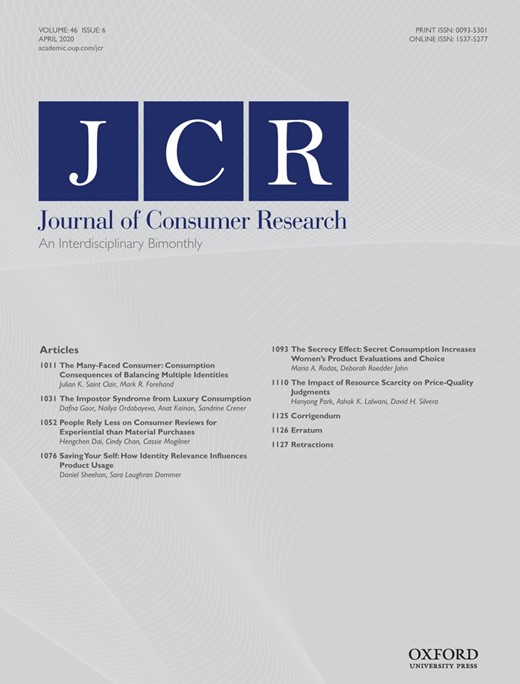-
Views
-
Cite
Cite
Dafna Goor, Nailya Ordabayeva, Anat Keinan, Sandrine Crener, The Impostor Syndrome from Luxury Consumption, Journal of Consumer Research, Volume 46, Issue 6, April 2020, Pages 1031–1051, https://doi.org/10.1093/jcr/ucz044
Close - Share Icon Share
Abstract
The present research proposes that luxury consumption can be a double-edged sword: while luxury consumption yields status benefits, it can also make consumers feel inauthentic, producing what we call the impostor syndrome from luxury consumption. As a result, paradoxically, luxury consumption may backfire and lead consumers to behave less confidently due to their undermined feelings of self-authenticity. Feelings of inauthenticity from luxury consumption may arise because consumers perceive luxury as an undue privilege. These feelings are less pronounced among consumers with high levels of chronic psychological entitlement, and they are reduced when consumers’ sense of entitlement is temporarily boosted. The effects are robust across studies conducted in the lab and in field settings such as the Metropolitan Opera, Martha’s Vineyard, a luxury shopping center, and the Upper East Side in New York, featuring relevant participant populations including luxury target segments and consumption contexts including consumers’ reflections on their actual past luxury purchases.



